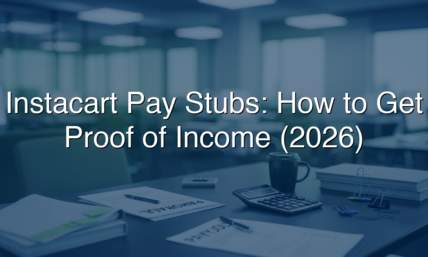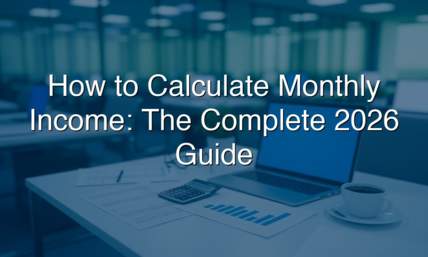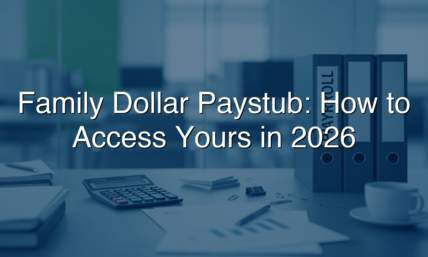Freelance Financials: These Are The Records You Should Be Keeping
It's so easy as a contractor to get muddled up with your finances. Lost receipts, no record of payments, unpaid invoices, being paid in cryptocurrency - there's a lot to handle. Freelancer financials can be simple, though, if you put a few easy measures in place. This guide will help you to manage your finances as a contractor so that you don't get stressed out doing your tax return.
Also read: 10 Ways For College Students To Make Money
Are You A Freelancer Or An Employee?
The technical definition to differentiate between a freelancer or an employee is that if you are self-employed, you can decide when and where the work is done. If your client insists you must perform the work on-site during office hours, then you would be considered an employee. Some issues blur this line a little, however. An independent contractor typically takes longer in-house projects than a freelancer.
This means they can work normal office hours on-site and still be treated as a contractor. However, they won't be paid vacation days, sick leave, or other employee benefits. The simplest way to decide if you're self-employed is to look at how your client pays you. Do you invoice them every month or do you receive a set pay stub each pay period?
If you have to manage your taxes, insurance, and overheads then you're self-employed. If you don't have to sort these out, and receive benefits like paid vacation days, then, you're an employee.
Also read: How To Make Money Online Fast In 2021
7 Simple Ways to Make Your Freelance Financials Accurate
The hardest thing about managing your self-employed finances is to keep records up-to-date and accurate. It's easy to let these tasks slide down the To-Do list. Follow these steps to get ahead and avoid a meltdown at tax return time!
1. Get A Separate Business Bank Account
You don't have to get a business bank account if you're a freelancer - but it will seriously simplify your accounting if you do. Separating your personal and business finances makes it easy to trace payments and expenses. You won't spend the end of each month trawling through statements to match up receipts and invoices: it becomes easier to trace in one single account for your business.
Also read: What Tools Can You Use to Streamline Your Business Operations?
2. Log Every Single Expense
You could invest in specific accounting software or use a simple spreadsheet. Whichever way you prefer to keep track of your business expenditure, make sure you log every cent you pay for everything related to your job. Keep all of your receipts, too. Don't just throw them in a box and ignore them until the end of the tax year! File them month-by-month as you go along.
You can even get receipt logging apps to take photos of your expenses and upload them into a 'virtual shoebox' that'll make filing taxes even easier.
Also read: What Are The Ways To Better Manage Payroll In Your Business?
3. Plan Ahead For Tax Time
The box full of receipts is the biggest headache for most freelancers when it comes to tax returns. The second biggest? Is having the cash saved to pay your tax bill. As a freelancer, it's easy to see the full amount of your invoice paid into your bank account and dance with glee at your cash boost. However, some of this needs to be immediately shifted into a savings account to cover your tax expenses.
Most self-employed contractors use a rule of thirds: save a third for taxes, leave a third in the business account for expenses, and take a third as salary or profit. This ensures you're left with a reasonable financial buffer for taxes, so you're not left panicking when you owe the IRS thousands of dollars.
4. Hire An Accountant For Your Tax Return
Cash-strapped freelancers don't like spending money if they can do the job themselves. However, hiring an accountant doesn't cost the earth if you're already organized with your finances - and it can actually save you hundreds if not thousands of dollars. It's worth a couple of hundred dollars to make sure your tax return is accurate and you've taken full advantage of all allowable expenses, too.
The more organized you are - such as using software or spreadsheets to track expenses and income - the less time your accountant will take. This keeps the cost low. You can also write off the cost of hiring an accountant against your tax bill!
5. Invest In Insurance Policies
Insurance premiums are high and this puts many freelancers off investing in them. However, you don't have the benefits of employer-subsidized healthcare or a guaranteed monthly income to cover the mortgage. Invest in health, life, and business insurance at the very least. These will ensure you're not left out of pocket in emergencies and help you to protect your long-term freelance finances.
6. Create Pay Stubs for Yourself
It's easy to forget as a freelancer that you're an employee - of yourself! However, pay stubs are a useful way to make sure you're setting aside everything you need to cover taxes. They also help create a paper trail to prove how much salary you've taken from the business. It's easy to create pay stubs using our online templates. Just input how much you earned and the rest is all calculated for you!
7. Be Consistent
The biggest hack to keeping ahead of your freelance finances is also the easiest: be consistent! Create sound financial habits to keep freelancer finances organized. Integral to this process is maintaining your three key financial reports, including profit and loss, balance sheet, and cash flow. Set aside a time in your diary every week to consolidate your expenses and income. Block out this time for account reconciliation, chasing late payments, and ensuring your insurance and business expenses are paid up. Treat it like an essential client meeting: don't move it around or cancel it for other things.
A few hours each week not only saves you a month of panic at the end of the tax year but will also help you keep your finger on the pulse of your business. It'll be easy to see how well your freelance business is doing - or if you need to start pitching for more work to make up for a shortfall in your business accounts.
Make Accurate Pay Stubs Online
Keeping track of your freelancer financials is much easier when you can see at-a-glance how much you've earned. You can plan your expenses with greater accuracy if you can tell what your average income has been over the last few months. A weekly or monthly pay stub helps you see everything you need to know about your income and taxes in one place.
It's time to organize your financials. Create your paystubs today with our pay stub maker!















